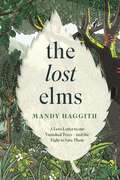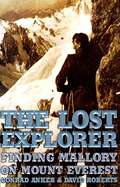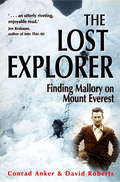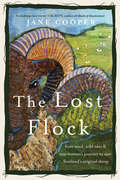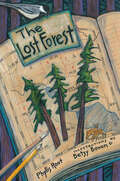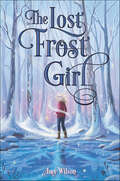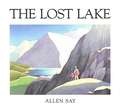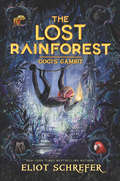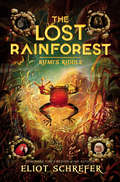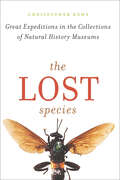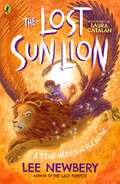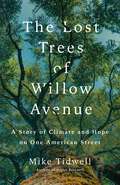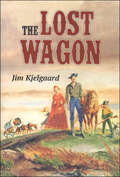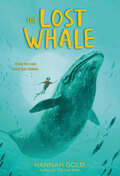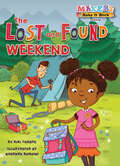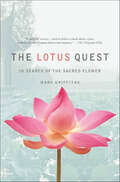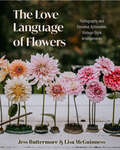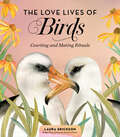- Table View
- List View
The Lost Elms: The stunning new nature book from the 'unofficial poet laureate of our woodlands'
by Dr Mandy Haggith'Unofficial poet laureate of our woodlands.' - THE SCOTSMAN'Not just an elegy to our lost elms but also a meditation on life, culture and trees.' - FRED PEARCEFor millennia, elms shaped our landscape and our folklore; then they started dying.For the past century, a deadly pandemic has raged across the world, destroying all in its path and outmanoeuvring scientists' desperate attempts to halt it.Dutch elm disease has killed hundreds of millions of trees globally and over 25 million in the UK alone, altering our landscapes forever. Few young people have seen a mature elm tree, yet they once covered great swathes of Europe and North America and their legacy lives on in our mythology.The Lost Elms is a love letter to our vanished elms - the story of how we have nearly lost them all, and the long, slow fight back. It tells the gripping story of the scientists desperately trying to halt the disease's relentless progress, and demonstrates the deadly effect globalisation can have on the environment, the threat of climate change, the importance of biosecurity and the intricate ways in which trees are interlinked with other species. Woven throughout is a lyrical look at the elm's central place in our history, culture and folklore - the elm features heavily in Greek, Celtic, Japanese, Germanic and Scandinavian mythology; as the 'Liberty Tree' it played a symbolic role in both the American and French Revolutions; and since ancient times the elm has held associations with death and the supernatural.However all is not lost: recent breakthroughs in ecological understanding reveal elms to be far more resilient than we ever imagined. This tree holds an important place in our history, and now might just offer hopeful lessons for how we can save other disappearing species and our environment.
The Lost Explorer
by David Roberts Conrad AnkerThis is the adventure story of the year -- how Conrad Anker found the body of George Mallory on Mount Everest, casting an entirely new light on the mystery of the explorer who may have conquered Everest seventy-five years ago. On June 8, 1924, George Leigh Mallory and Andrew "Sandy" Irvine were last seen climbing toward the summit of Mount Everest. Clouds soon closed around them, and they vanished into history. Ever since, mountaineers have wondered whether they reached the summit twenty-nine years before Edmund Hillary and Tenzing Norgay. On May 1, 1999, Conrad Anker, one of the world's strongest mountaineers, discovered Mallory's body lying facedown, frozen into the scree and naturally mummified at 27,000 feet on Everest's north face. The condition of the body, as well as the artifacts found with Mallory, including goggles, an altimeter, and a carefully wrapped bundle of personal letters, are important clues in determining his fate. Seventeen days later, Anker free-climbed the Second Step, a 90-foot sheer cliff that is the single hardest obstacle on the north ridge. The first expedition known to have conquered the Second Step, a Chinese team in 1975, had tied a ladder to the cliff, leaving unanswered the question of whether Mallory could have climbed it in 1924. Anker's climb was the first test since Mallory's of the cliff's true difficulty. In treacherous conditions, Anker led teammate Dave Hahn from the Second Step to the summit. Reflecting on the climb, Anker explains why he thinks Mallory and Irvine failed to make the summit, but at the same time, he expresses his awe at Mallory's achievement with the primitive equipment of the time. Stunningly handsome and charismatic, Mallory charmed everyone who met him during his lifetime and continues to fascinate mountaineers today. He was an able writer, a favorite of the Bloomsbury circle, and a climber of legendary gracefulness. The Lost Exploreris the remarkable story of this extraordinarily talented man and of the equally talented modern climber who spearheaded a discovery that may ultimately help solve the mystery of Mallory's disappearance.
The Lost Explorer: Finding Mallory on Mount Everest
by David Roberts Conrad AnkerIn 1999, Conrad Anker found the body of George Mallory on Mount Everest, casting an entirely new light on the mystery of the lost explorer.On 8 June 1924, George Leigh Mallory and Andrew 'Sandy' Irvine were last seen climbing towards the summit of Everest. The clouds closed around them and they were lost to history, leaving the world to wonder whether or not they actually reached the summit - some 29 years before Edmund Hillary and Tensing Norgay.On 1 May 1999, Conrad Anker, one of the world's foremost mountaineers, made the momentous discovery - Mallory's body, lying frozen into the scree at 27,000 feet on Everest's north face. Recounting this day, the authors go on to assess the clues provided by the body, its position, and the possibility that Mallory had successfully climbed the Second Step, a 90-foot sheer cliff that is the single hardest obstacle on the north face. A remarkable story of a charming and immensely able man, told by an equally talented modern climber.
The Lost Explorer: Finding Mallory on Mount Everest
by David Roberts Conrad AnkerIn 1999, Conrad Anker found the body of George Mallory on Mount Everest, casting an entirely new light on the mystery of the lost explorer.On 8 June 1924, George Leigh Mallory and Andrew 'Sandy' Irvine were last seen climbing towards the summit of Everest. The clouds closed around them and they were lost to history, leaving the world to wonder whether or not they actually reached the summit - some 29 years before Edmund Hillary and Tensing Norgay.On 1 May 1999, Conrad Anker, one of the world's foremost mountaineers, made the momentous discovery - Mallory's body, lying frozen into the scree at 27,000 feet on Everest's north face. Recounting this day, the authors go on to assess the clues provided by the body, its position, and the possibility that Mallory had successfully climbed the Second Step, a 90-foot sheer cliff that is the single hardest obstacle on the north face. A remarkable story of a charming and immensely able man, told by an equally talented modern climber.
The Lost Flock: Rare Wool, Wild Isles and One Woman’s Journey to Save Scotland’s Original Sheep
by Jane CooperThe Lost Flock is the story of the remarkable and rare little horned sheep, known as Orkney Boreray, and the wool-obsessed woman who moved to one of Scotland’s wildest islands to save them. It was Jane Cooper’s passion for knitting that led her to discover the world of rare-breed sheep and their wool. Through this, Jane uncovered the ‘Orkney Borerary’ – a unique group within the UK’s rarest breed of sheep, the Boreray, and one of the few surviving examples of primitive sheep in northern Europe. As her knowledge of this rarest of heritage breeds grew, she took the bold step to uproot her quiet suburban life in Newcastle and relocate to Orkney, embarking on a new adventure and life as farmer and shepherd. Jane was astonished to find that she was the sole custodian of this lost flock in the world, and so she began investigating their mysterious and ancient history, tracking down the origins of the Boreray breed and its significance to Scotland’s natural heritage. From Viking times to Highland crofts and nefarious research experiments in Edinburgh, this is a so-far untold real-life detective story. It is also the story of one woman’s relentless determination to ensure a future for her beloved sheep, and in doing so revealing their deep connection to the Scottish landscape. An unforgettable story of a heritage breed and the importance of its existence.
The Lost Forest
by Phyllis RootThe story of a forest &“lost&” by a surveying error—and all the flora and fauna to be found thereA forest, of course, doesn&’t need a map to know where to grow. But people need a map to find it. And in 1882 when surveyors set out to map a part of Minnesota, they got confused, or tired and cold (it was November), and somehow mapped a great swath of ancient trees as a lake. For more than seventy-five years, the mistake stayed on the map, and the forest remained safe from logging—no lumber baron expects to find timber in a lake, after all. The Lost Forest tells the story of this lucky error and of the 144 acres of old-growth red and white pine it preserved. With gentle humor, Phyllis Root introduces readers to the men at their daunting task, trekking across Minnesota, measuring and marking the vast land into townships and sections and quarters. She takes us deep into a stand of virgin pine, one of the last and largest in the state, where U.S. history and natural history meet. With the help of Betsy Bowen&’s finely observed and beautiful illustrations, she shows us all the life that can be found in the Lost Forest.Accompanying the story is a wealth of information about the Cadastral Survey and about the plants and animals that inhabit forests—making the book a valuable guide for readers who might want to look even deeper into the history of Minnesota, the flora and fauna of old-growth forests, and the apportioning of land in America.
The Lost Frost Girl
by Amy WilsonA modern-day fairy tale full of frosty magic, Amy Wilson’s stunning debut about a girl who discovers that she is Jack Frost’s daughter will enchant fans of the Emily Windsnap series and Frozen.“As magical as frost itself, The Lost Frost Girl is a truly special tale, told with gorgeous prose and filled with compelling characters. I absolutely loved it!” —Sarah Beth Durst, author of Journey Across the Hidden IslandsWith a name like hers, Owl never expected her life to be normal, at home or at school. But when Owl finds out that she is Jack Frost’s daughter, her world shifts beyond what she could ever imagine.Determined to meet him, Owl delves into Jack’s wonderful world of winter and magic—the kind of place she thought only existed in fairy tales. And as she notices frost patterns appearing on her skin and her tears turning to ice, Owl starts to wonder if being Jack Frost’s daughter means that she has powers of her very own.At once breathtaking and brimming with heart, The Lost Frost Girl is a story of family, friendship, and the magic of embracing who you are meant to be.
The Lost Hero (The Heroes of Olympus #1)
by Rick RiordanAfter saving Olympus from the evil Titan lord, Kronos, Percy and friends have rebuilt their beloved Camp Half-Blood, where the next generation of demigods must now prepare for a chilling prophecy of their own: Seven half-bloods shall answer the call, To storm or fire the world must fall. An oath to keep with a final breath, And foes bear arms to the Doors of Death. Now, in a brand-new series from blockbuster best-selling author Rick Riordan, fans return to the world of Camp Half-Blood. Here, a new group of heroes will inherit a quest. But to survive the journey, they’ll need the help of some familiar demigods.
The Lost Lake
by Allen SayLuke and his father, who is disgusted by the tourists surrounding the once secluded lake of his childhood, hike deeper into the wilderness to find a "lost lake" of their own.
The Lost Orchard: A French chef rediscovers a great British food heritage
by Raymond Blanc'Blanc set about the most thorough apple-tasting and cooking project I have heard of . . . [The Lost Orchard] condenses the highlights, his love letters to the forgotten apple breeds.' The Times'I began to dream about an orchard filled with thousands of fruit trees... Today we have an orchard with over 150 ancient varieties of apple. Each one has its heritage in a village or a county that used to thrive on that particular variety. They tell the story not only of what we have lost in Britain but also what we could regain.'Over the past seven years, Raymond Blanc has planted an orchard of 2,500 trees in the grounds of his hotel-restaurant in Oxfordshire. Yielding about 30 tonnes of fruit for his kitchen each year, it is full of ancient and forgotten varieties of British apples and pears, along with walnut trees, quince, medlars, apricots, nectarines, peaches, plums, damsons and cherries. A further 600 heritage fruit trees have been added from Raymond's home region of Franche-Comté in France. The Lost Orchard is a love letter to each of these varieties, complete with beautiful black and white drawings, photographs of Belmond Le Manoir and fascinating information and anecdotes about each fruit, along with recipes and stories.
The Lost Orchard: A French chef rediscovers a great British food heritage
by Raymond Blanc'Blanc set about the most thorough apple-tasting and cooking project I have heard of . . . [The Lost Orchard] condenses the highlights, his love letters to the forgotten apple breeds.' The Times'I began to dream about an orchard filled with thousands of fruit trees... Today we have an orchard with over 150 ancient varieties of apple. Each one has its heritage in a village or a county that used to thrive on that particular variety. They tell the story not only of what we have lost in Britain but also what we could regain.'Over the past seven years, Raymond Blanc has planted an orchard of 2,500 trees in the grounds of his hotel-restaurant in Oxfordshire. Yielding about 30 tonnes of fruit for his kitchen each year, it is full of ancient and forgotten varieties of British apples and pears, along with walnut trees, quince, medlars, apricots, nectarines, peaches, plums, damsons and cherries. A further 600 heritage fruit trees have been added from Raymond's home region of Franche-Comté in France. The Lost Orchard is a love letter to each of these varieties, complete with beautiful black and white drawings, photographs of Belmond Le Manoir and fascinating information and anecdotes about each fruit, along with recipes and stories.
The Lost Pond
by Meredith CostainWhen a new road divides a wetlands by Kenny's home, Kenny worries about how to save the frogs when they are ready to migrate -- right across the road!
The Lost Rainforest #2: Gogi's Gambit
by Eliot Schrefer Emilia DziubakThe second book in New York Times bestselling author and National Book Award finalist Eliot Schrefer’s Lost Rainforest series will thrill fans of Warriors and Spirit Animals with action and humor as the shadowwalkers battle to save their magical rainforest home.Caldera always existed in harmony between the creatures who walk by day and those who walk by night—until an ancient evil awakened. In the year since the shadowwalkers’ narrow escape from the Ant Queen, the ants’ destruction has only spread.Gogi, a shadowwalker monkey still learning to wield his fire powers, embarks on a quest with his friends—including a healing bat, an invisible panther, and a tree frog who controls the winds—for a powerful object that can harness the magic of the eclipse to defeat the Ant Queen.But with just weeks before the next eclipse, Gogi must race to prove that he can control the mighty depths of his talent if he is to protect his friends, save the rainforest, and return home unsinged.
The Lost Rainforest #3: Rumi's Riddle
by Eliot SchreferThe action-packed conclusion to the Lost Rainforest series by award-winning and bestselling author Eliot Schrefer delivers one last thrilling adventure as the shadowwalkers are pushed to the limit to protect Caldera. Perfect for fans of Warriors and Spirit Animals. When the shadowwalkers were victorious in their battle against the Ant Queen, they hoped their work to save Caldera was done. But the rainforest has begun to rumble.Rumi, a scholarly tree frog who can control the wind, must bring his band of animal friends to face the greatest danger they’ve yet encountered—the giant volcano beneath the jungle itself. While the volcano roars, rumors of a mysterious evil blanket Caldera—the Elemental of Darkness has emerged and is building a legion of followers.When the shadowwalkers are forced to divide and conquer, Rumi finds himself an unlikely leader and must grapple with his own secrets before he can unlock the full scope of his magical powers. Can Rumi rally the shadowwalkers to save their rainforest home?
The Lost Scout: A Garth Ryland Mystery (Garth Ryland Mystery #14)
by John RiggsGarth Rylandd, editor of the Oakalla (Wisconsin) Reporter and part-time sleuth, is knocked cold while investigating the scream that disturbed his otherwise peaceful camping trip. Albert Vice, a local factory worker, later turns up dead, leading to Garth's entanglement in an intricate web of violence and deception. When the local lawman is beaten to within an inch of his life while investigating the murder, the burden of solving it is placed squarely on the shoulders of Garth Ryland. Garth's camping ground, the Lost 1600, is the deepest tract of woods in Adams County and is legendary as the haunting ground of the mysterious Lost Scout. But who is the Lost Scout? Is he merely an innocuous legend, a product of superstitious local minds? Or is he truly the boy scout rumored to have disappeared amidst a scream of incomprehensible pain and terror many years ago, still alive and roaming the woods. Garth becomes convinced that the key to Albert's death lies in uncovering the truth about the Lost Scout. Following in the footsteps of Riggs's previous books, The Lost Scout deals with pertinent social topics in this compelling small-town drama. Riggs adeptly grapples with the actions of a right-wing militia and the complications involved in a veteran's attempt to re-enter everyday life. He does this all without compromising the integrity of life in middle America, which he portrays with striking accuracy. In his effort to resolve this mystery Garth comes in contact with an eclectic cast of characters chock full of local color. Ranging from the victim's widow, and Oakalla's resident siren, Kristina Vice to Albert Vice's militia comrades, each character has a different story about the murder and about the identity of the Lost Scout. So who is the Lost Scout? In the end his identity surprises even Garth. Look for more books in the Garth Ryland Series including #1. The Last Laugh, #3. The Glory Hound, #6. Wolf in Sheep's Clothing, #7. One Man's Poison, #8. Dead Letter, #9. A Dragon Lives Forever, #10. Cold Hearts and Gentle People, #11. Killing Frost, #13 He Who Waits.
The Lost Species: Great Expeditions in the Collections of Natural History Museums
by Christopher KempThe tiny, lungless Thorius salamander from southern Mexico, thinner than a match and smaller than a quarter. The lushly white-coated Saki, an arboreal monkey from the Brazilian rainforests. The olinguito, a native of the Andes, which looks part mongoose, part teddy bear. These fantastic species are all new to science—at least newly named and identified; but they weren’t discovered in the wild, instead, they were unearthed in the drawers and cavernous basements of natural history museums. As Christopher Kemp reveals in The Lost Species, hiding in the cabinets and storage units of natural history museums is a treasure trove of discovery waiting to happen. With Kemp as our guide, we go spelunking into museum basements, dig through specimen trays, and inspect the drawers and jars of collections, scientific detectives on the hunt for new species. We discover king crabs from 1906, unidentified tarantulas, mislabeled Himalayan landsnails, an unknown rove beetle originally collected by Darwin, and an overlooked squeaker frog, among other curiosities. In each case, these specimens sat quietly for decades—sometimes longer than a century—within the collections of museums, before sharp-eyed scientists understood they were new. Each year, scientists continue to encounter new species in museum collections—a stark reminder that we have named only a fraction of the world’s biodiversity. Sadly, some specimens have waited so long to be named that they are gone from the wild before they were identified, victims of climate change and habitat loss. As Kemp shows, these stories showcase the enduring importance of these very collections. The Lost Species vividly tells these stories of discovery—from the latest information on each creature to the people who collected them and the scientists who finally realized what they had unearthed—and will inspire many a museumgoer to want to peek behind the closed doors and rummage through the archives.
The Lost Sunlion: A magical adventure for ages 8-12 (The Last Firefox #3)
by Lee NewberyThe third magical adventure in the Last Firefox series.When out-of-control weather brings danger to his home town, Charlie Challinor suspects that more than climate change might be to blame. Heading back to Fargone with Cadno the firefox, Lippy and Roo, Charlie discovers the magical realm is also in dire peril.The sinister giant Gawr has stolen the Cariad, the Heart of Fargone, mixing up the world's magic and plunging the land into chaos. With the Cariad's ancient guardian, the sunlion Llew, missing in action, only Charlie and his friends can save the day - but at what cost . . . ?
The Lost Trees of Willow Avenue: A Story of Climate and Hope on One American Street
by Mike TidwellA riveting and elegant story of climate change on one city street, full of surprises and true stories of human struggle and dying local trees – all against the national backdrop of 2023's record heat domes and raging wildfires and, simultaneously, rising hopes for clean energy.In 2023, author and activist Mike Tidwell decided to keep a record for a full year of the growing impacts of climate change on his one urban block right on the border with Washington, DC. A love letter to the magnificent oaks and other trees dying from record heat waves and bizarre rain, Tidwell's story depicts the neighborhood's battle to save the trees and combat climate change: The midwife who builds a geothermal energy system on the block, the Congressman who battles cancer and climate change at the same time, and the Chinese-American climate scientist who wants to bury billions of the world's dying trees to store their carbon and help stabilize the atmosphere.The story goes beyond ailing trees as Tidwell chronicles people on his block coping with Lyme disease, a church with solar panels on its roof and floodwater in its basement, and young people anguishing over whether to have kids –all in the same neighborhood and all against the backdrop of 2023’s record global temperatures and raging wildfires and hurricanes. Then there’s Tidwell himself who explores the ethical and scientific questions surrounding the idea of “geoengineering” as a last-ditch way to save the world’s trees – and human communities everywhere – by reflecting sunlight away from the planet. No book has told the story of climate change this way: hyper-local, full of surprises, full of true stories of life and death in one neighborhood. The Lost Trees of Willow Avenue is a harrowing and hopeful proxy for every street in America and every place on Earth.
The Lost Wagon
by Jim KjelgaardWhy would a farmer exchange his plowed fields for a wilderness? Why would a husband and father take his family from civilization into an untamed land? In the middle of the last century, thousands of Americans pushed westward into the unknown—and Joe Tower, who had never been fifty miles from his birthplace, was one of them. The Lost Wagon tells the gripping, warmly human story of why he ventured along the Oregon Trail and of how he and his family met its hazards Packed with action and unmistakably genuine in its characters and events, this story of a desperate journey to a promised land is tops for authentic color and real excitement. With its portrayal of the conflicts within a good marriage, the joys and uncertainties of young love, the closeness of a family cut off from the world, The Lost Wagon is a well-rounded, many faceted story. And its honest picture of the fulfillment of one man's dream carries the hope of the promise that has never failed our nation.
The Lost Whale
by Hannah GoldA gorgeously written standalone from the acclaimed author of The Last Bear, Hannah Gold’s second novel is a touching story about adventure, recovery, and love—perfect for fans of Pax and A Wolf Called Wander.When Rio is sent to live with a grandmother he barely knows in California, he feels completely alone. Then he makes a new friend on the foggy beach—a girl named Marina, who teaches him about the massive grey whales that migrate nearby.As Rio grows to love the whales, he discovers that his mother loved them, too. He’s suddenly sure that if he can somehow find a way to connect her with these gentle giants – and especially with a particular whale named White Beak – she will get better and come to join him in California. But White Beak is missing—and Rio must embark on a desperate journey across the dangerous ocean to find her. An excellent choice for readers in grades 3 to 7, this fierce celebration of friendship includes information about the struggles facing real gray whales from climate change, pollution, and over-fishing.
The Lost and Found Weekend (Makers Make It Work)
by Kiki ThorpeTying into the popular Makers Movement, Makers Make it Work is a series of fun easy-to-read stories that focus on problem-solving and hands-on action. With bright, eye-catching art and explanatory sidebars with additional information on the topic, these books show kids how to use their hands, their heads, their creativity, and their problem-solving skills to overcome every challenge facing them. Gia's dad is always losing things. His glasses. His phone. It almost ruins their camping trip. Gia needs to figure out a way to fix her dad! With the Makers Make It Work series, any kid can be a Maker! Each book also includes an activity for young makers to try themselves. (Topic: Sewing)
The Lotus Quest: In Search of the Sacred Flower
by Mark GriffithsA captivating history of one of the world's most iconic and mysterious flowers Bewitched by a lotus which flowered from three-thousandyear- old seeds in his English garden, Mark Griffiths set out to track the origins and significance of this sublime plant in this beautifully-illustrated book. The Lotus Quest takes Griffiths from the headquarters of the Linnaean Society in London to a mountain top in northern Japan. As he travels in search of this ancient flower, Griffiths looks at the lotus's significance in ancient Egypt and India, the plant's medicinal uses and the inspiration it has provided to Western artists. As he tracks the plant, its story unveils a stunning vision of Japan's feudal era with visits to shrines, ruins, gardens and wild landscapes as well as meetings with priests and archaeologists, philosophers and anthropologists, gardeners and botanists, poets and artists. He even dines on the lotus in a Tokyo cafe. By the end of Griffiths' journey, when he reaches the hauntingly beautiful Japanese temple of Chuson-ji, readers will finally understand why the lotus has obsessed people throughout the ages.
The Love Language of Flowers: Floriography and Elevated, Achievable, Vintage-Style Arrangements
by Lisa McGuinness Jess ButtermoreA Fresh Twist on Vintage Flower Meanings & Arrangements"This book is enchanting to the eyes, inspiring for the mind, and refreshing for the soul.” —Maggie Hyde, Petal Back Farm#1 New Release in Flower Arranging, Plant & Animal Photography, Photograpy Equipment & Techniques, Nature Literary Criticism, Victorian Literary Criticism, and Botany of FlowersThis floriography guide is a gorgeous and inspired combination of vintage Victorian flower meanings, quotes, and lore perfectly entwined with a contemporary toolbox for creating stunning flower arrangements and bouquets.For those who want to create beautiful bouquets and flower arrangements with history. Blooming with inspirational lifestyle photography by Jess Buttermore of Cedar House Living, The Love Language of Flowers will blow you away with an intriguing history of flowers alongside step-by-step instructions for creating 25 tasteful, meaningful arrangements.Express yourself and show others you care. With stunning photographs of different types of flowers, a detailed list of floral arranging tools and supplies, and fascinating Victorian flower meanings, The Love Language of Flowers provides you with an elegant way to express your feelings or bring your self-care to the next level.Inside The Love Language of Flowers, find:A visual glossary of flowers and their Victorian meaningsSimple step-by-step instructions for creating twenty-five gorgeous floral arrangementsSuggestions for introducing contemporary plants and other interesting elements to bring a fresh look to classic bouquetsIf you like botanical books illustrated with stunning photography and floral design, such as Floriography, The Complete Language of Flowers, or Growing Flowers, you’ll love The Love Language of Flowers.
The Love Lives of Birds: Courting and Mating Rituals
by Laura EricksonFrom the lifelong devotion of the American crow to the dalliances of the eastern bluebird, from the bald eagle&’s dazzling aerial display to the male ruby-throated hummingbird&’s reputation as a &“deadbeat dad&” — courtship, mating, and parenting differ dramatically among birds. Ornithologist and author Laura Erickson takes readers on a romance-fueled romp through the love lives of 35 species, exploring the diversity of avian approaches to pairing up. Each species spotlight pairs Erickson&’s remarkable depth of scientific knowledge with her talent for drawing humorous and insightful parallels between human and bird. The result is a riveting read for bird-watchers and nature lovers alike.
The Lovely and the Wild
by Louise De Lawrence Glen LoatesWinner of the 1969 John Burroughs Medal <p><p> From childhood Louise de Kiriline Lawrence dreamed of settling one day in an unspoiled, tranquil spot and living in harmony with nature. This beautifully written book is the story of her dream come true. <p> Truly a labour of love, The Lovely and the Wild is the product of an exceptional woman's profound joy at being part of the limitless world of nature. <p> Louise de Kiriline Lawrence passes over in a single sentence a fascinating life "which does not belong to this book." Born in Sweden, daughter of a naturalist, she served as a translator to an American military mission during the Russian Revolution, and was in charge of a Russian military hospital. She was a delegate of the Swedish Red Cross Expedition to the Volga region during the great famine of 1922 before emigrating to Canada.
